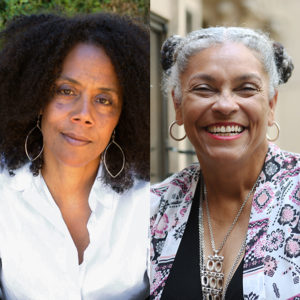
House/Full of Blackwomen
A Blade of Grass Fellows for Socially Engaged Art
Working collectively as House/Full of Blackwomen, choreographer Amara Tabor-Smith and theater director Ellen Sebastian Chang in collaboration with sex-trafficking abolitionists and survivors, dancers, nurses, architects, musicians, somatic PhD scholars, video artists, chefs, teachers, and anti-trafficking organizations, will gather to create public performances that represent the private rituals of healing and well-being for black women and girls. Developed through intimate dialogues between collaborators, the performed rituals address issues of displacement, erasure, well-being and sex-trafficking of black women and girls in Oakland, California, ignited by the core question, “How can we as black women and girls find space to rest, breathe, and be well within a stable home?”
Visit the House/Full of Blackwomen website
Artist Bios
Ellen Sebastian Chang grew up in small farm town in eastern Washington state with her paternal African American grandparents from Mississippi and Texas. In 1970 she moved alone at age fourteen to know and live with her biological, Irish German mother in Berkeley, California. Ms. Sebastian Chang is a director, writer and teaching artist. She began her career as a lighting designer and technician. Her directorial work is highly influenced by this love of light and shadow. Ms. Sebastian Chang was the cofounder and artistic director of LIFE ON THE WATER, a national and internationally known presenting and producing organization at San Francisco’s Fort Mason Center, from 1986 through 1995. She has been fortunate to work with a range of artists as diverse as her own personal history. She has directed and collaborated with hip-hop artists on Thieves in the Temple: The Reclaiming of Hip Hop (Aya deLeon); Stateless: a hip hop vaudeville (Dan Wolf, Keith Pinto, Tommy Shepard and One Ring Zero); and at the Youth Speaks Living Word Festival. Sebastian Chang has staged large scale music dramas including Gamelan Sekar Jaya’s Kali Yuga, Kitka’s The Rusalka Cycle, and Philip Glass/Oakland Opera Theater’s Ahknahten, which was a San Francisco Chronicle top ten classic event of 2004. She has staged dance including Our Daily Bread with Amara Tabor-Smith’s Deep Waters Dance Theater, Luxury Items with Monique Jenkinson aka Fauxnique; as well as ensemble theater productions including Lynne Nottage’s Fabulation or The Re-education of Undine and Eisa Davis’ Bulrusher. In 1982, her directorial and writing debut Your Place Is No Longer With Us, created in a Victorian mansion, told the story of the coming of age of a ten year old biracial girl. A meal of black-eyed peas, mustard greens and corn bread cooked throughout the performance was served to the audience at the end of the play. Your Place . . . was also one of many location/environmental works created by Ms. Sebastian Chang including The Stairs for the Galleria de la Raza; Building Images, staged for the American Institute of Architects at the Vaillancourt Fountain Justin Herman Plaza, and The Surreal Meal in a private home in San Francisco. In 2015 she collaborated with Oakland/LA artist Maya Gurantz to create A Hole in Space (Oakland Redux), voted Best Underground Public Art Project by the East Bay Express. In 2013, she was a consulting producer for HBO’s Whoopi Goldberg Presents Moms Mabley. Sebastian Chang was also been a general and events manager at FuseBOX restaurant. She is co-creator of House/Full Of Blackwomen with Amara Tabor-Smith. She resides between Alameda, CA and the Pacific Northwest of Washington.
Amara Tabor-Smith was born and raised in San Francisco, and currently lives in Oakland. She is a choreographer/performance maker who describes her work as Conjure Art. Her dance and performance making practice utilizes Yoruba spiritual ritual to address issues of social and environmental justice, race, gender identity, homefullness, and belonging in the Afro present. She is interested in deepening the ways ritual performance work can bring people together in an experience of mutual vulnerability and connection in order to shift the vibration of oppression into liberation and well-being. She is a 2018 USA Artist Fellow, a 2017 UBW Choreographic Center Fellow, and is a 2016 recipient of the Creative Capital Grant along with collaborator Ellen Sebastian Chang. Amara is the artistic director of Deep Waters Dance Theater and was the co-artistic director of Headmistress, a collaboration with movement artist Sherwood Chen. She has worked with dance and performance artists such as Ed Mock, Joanna Haigood, Ana Deveare Smith, Faustin Linyekula, and Marc Bamuthi Joseph, and was an associate artistic director of Urban Bush Women. Amara received her MFA in Dance from Hollins University. She is a lecturer at UC Berkeley, and is an Artist in Residence teaching at Stanford University. For more information, visit www.deepwatersdance.com.
Artist portraits by Bethanie Hines
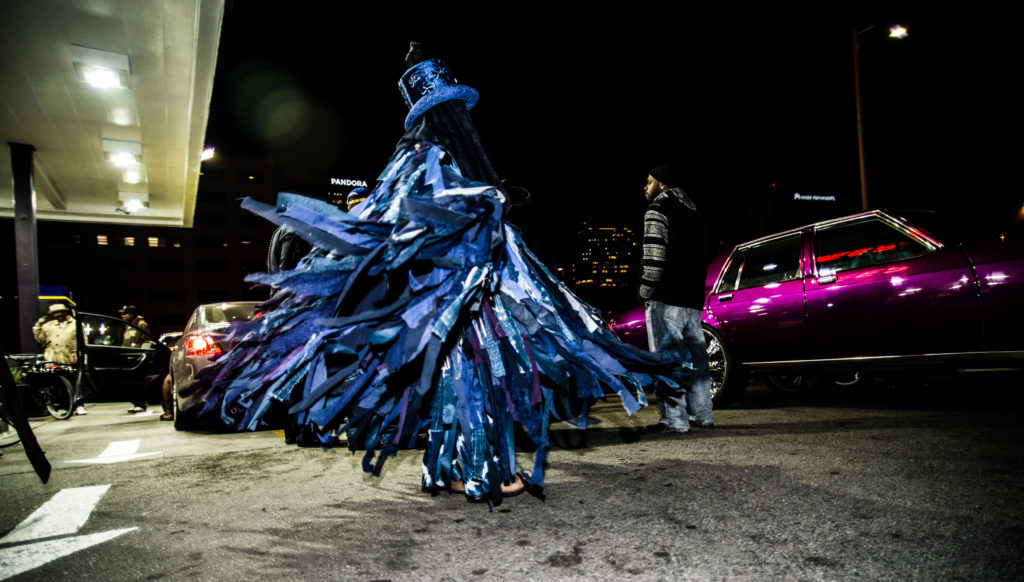
House/Full of Blackwomen Episode: “Now You See Me (Fly),” a ritual procession on the streets of Downtown Oakland against sex trafficking, December 2016. Photo by Robbie Sweeny.
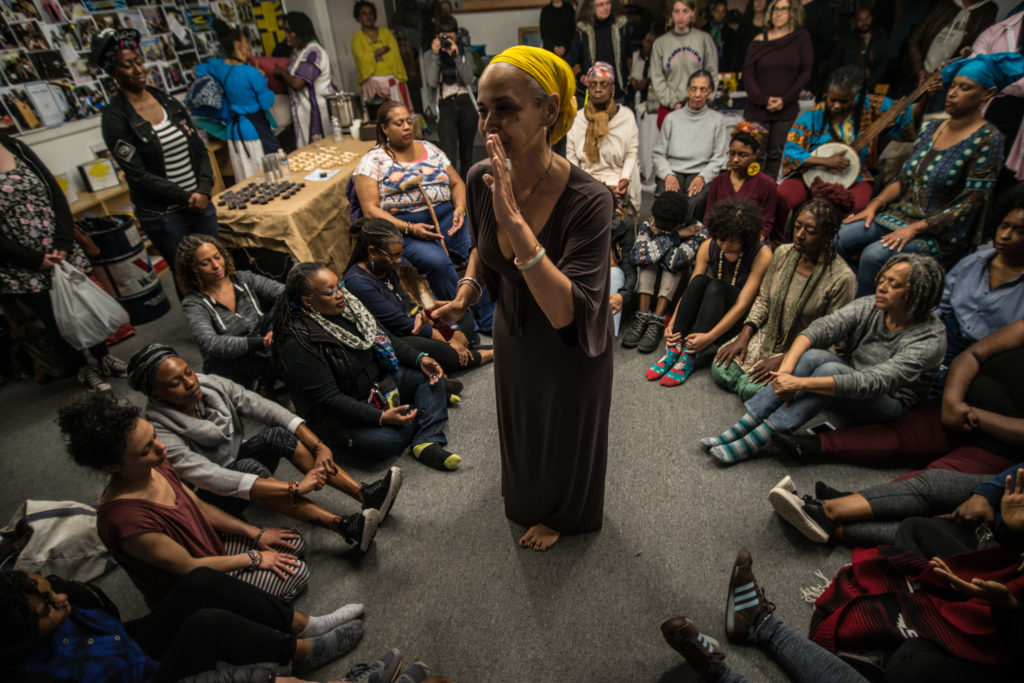
House/Full of Blackwomen Episode: “Black Womxn Dreaming,” the blessing of the beds ceremony for a seven-day and night ritual of black women sleeping in a secret Oakland location. This ceremony invited the public to bring their pillows to be blessed, and to send the first wave of black women off to their ritual of rest, March 2017. Photo by Robbie Sweeny.
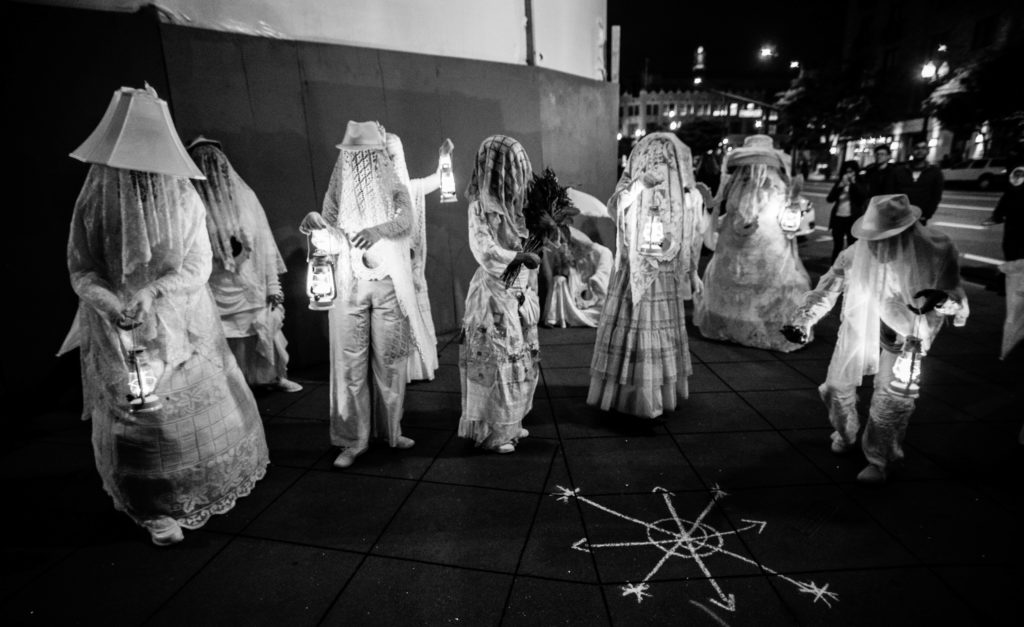
House/Full of Blackwomen Episode: “Now You See Me (Fly),”a ritual procession on the streets of Downtown Oakland against sex trafficking, May 2016. Photo by Robbie Sweeny.
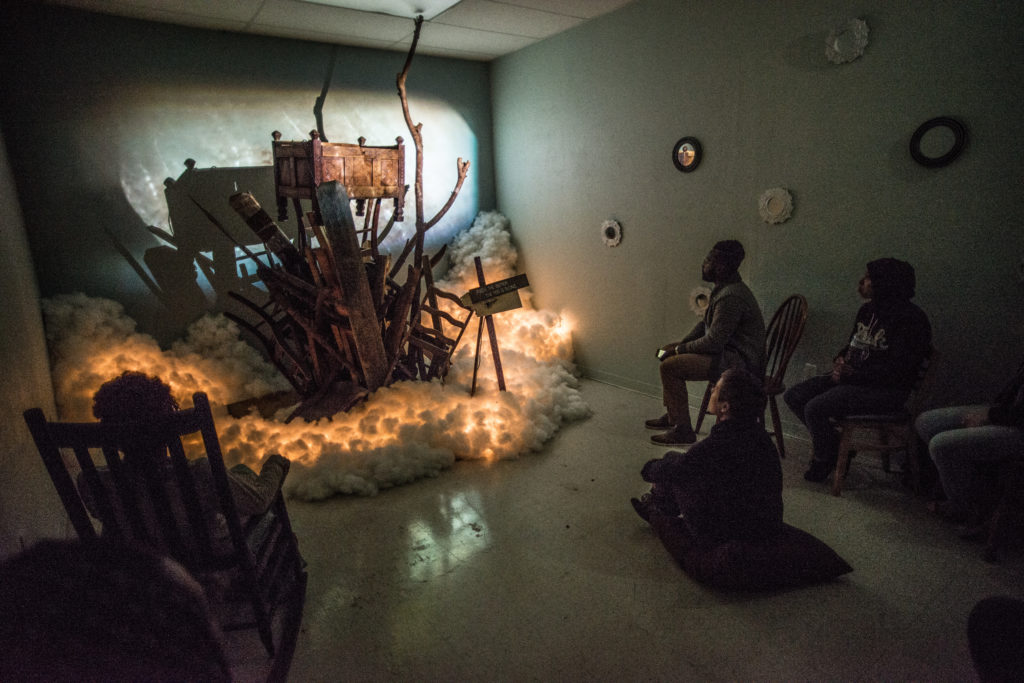
House/Full of Blackwomen Episode: “Black Womxn Dreaming,” installation dedicated to Black women’s dreams at Chapter 510; a youth writing organization in Oakland, March 2017. Photo by Robbie Sweeny.
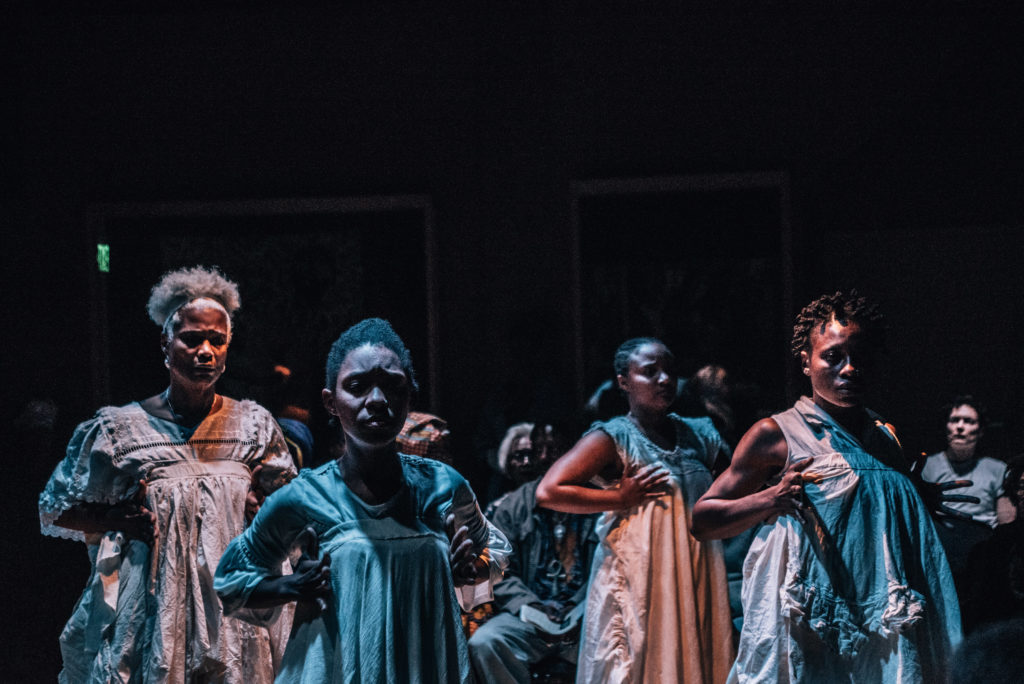
House/Full of Blackwomen Episode: “passing/through/the great middle,” ritual performance at East Side Arts Center, February 2018. Photo by Robbie Sweeny.
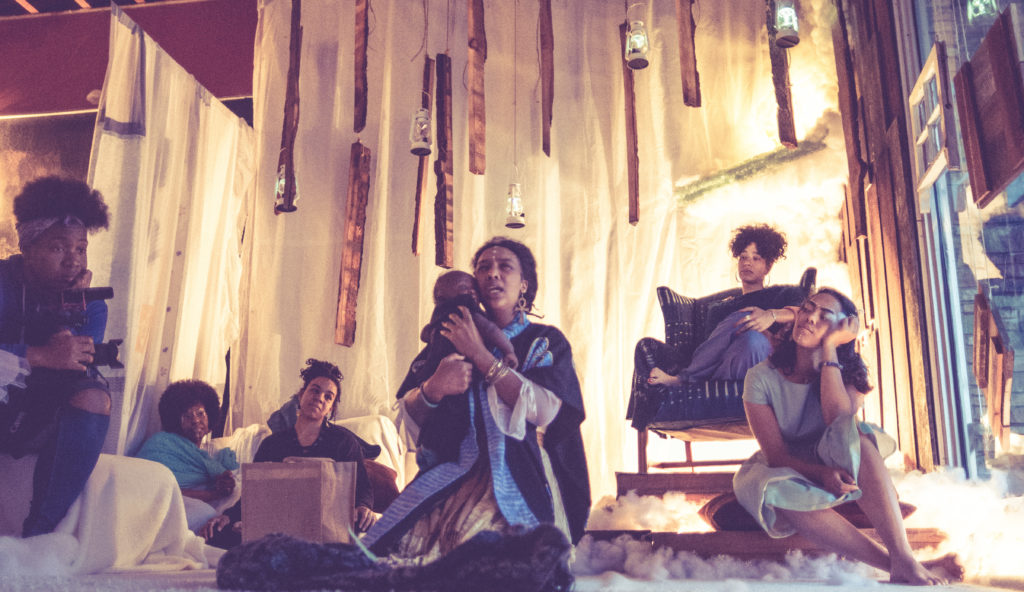
House/Full of Blackwomen Episode: “Black Womxn Dreaming, “the closing ceremony for the ritual of rest and dreaming for black women, April 2017. Photo by Robbie Sweeny.
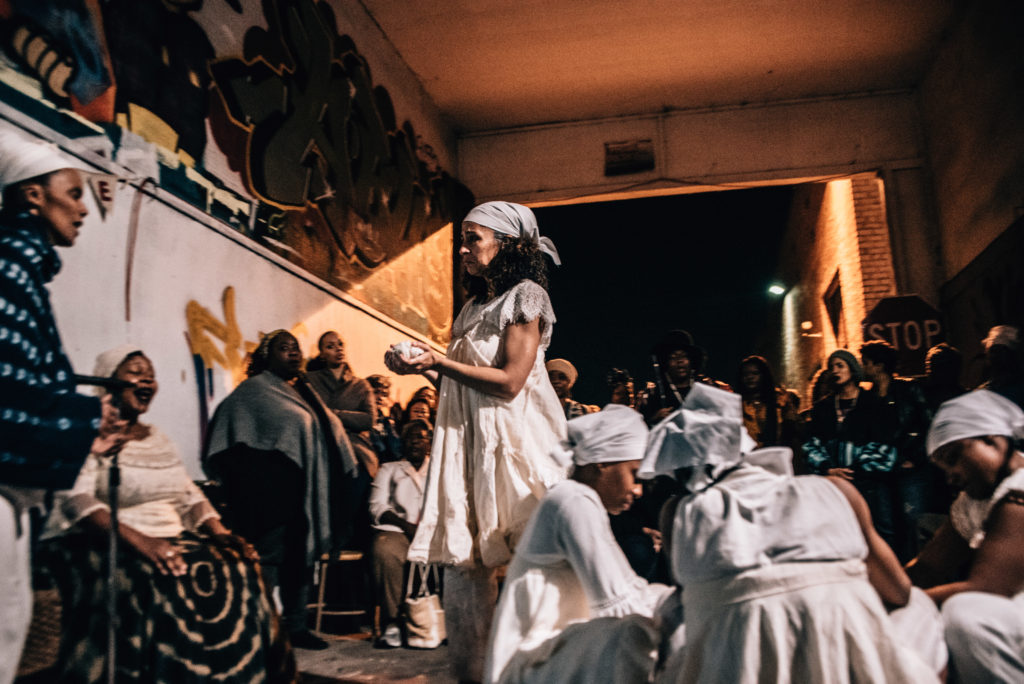
House/Full of Blackwomen Episode: “passing/through/the great middle,” ritual performance at East Side Arts Center, February 2018. Photo by Robbie Sweeny.
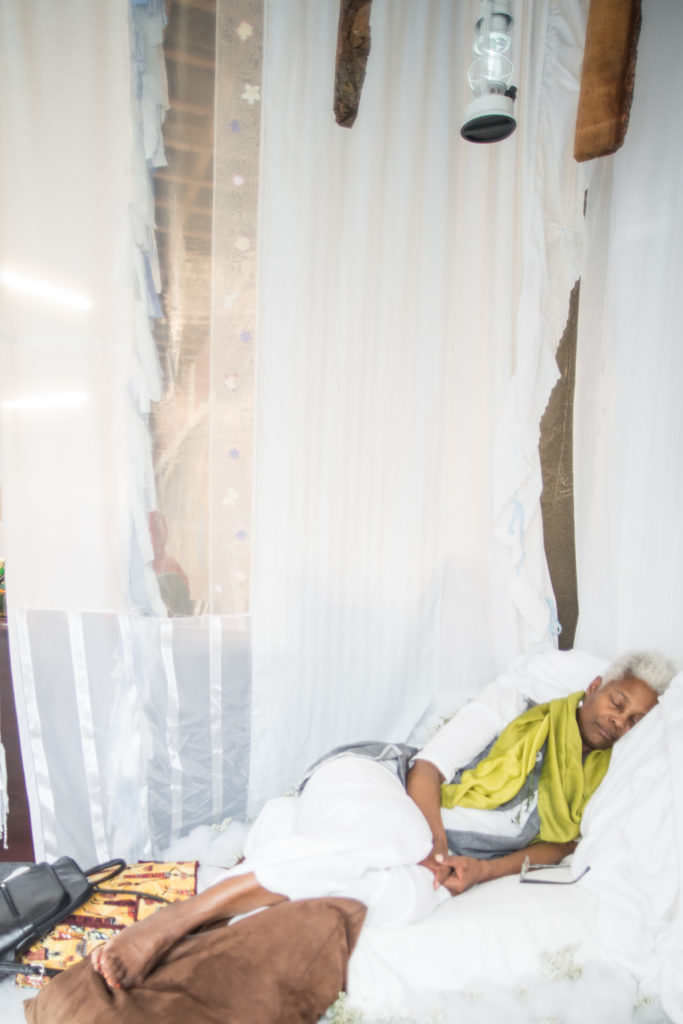
House/Full of Blackwomen Episode: “Black Womxn Dreaming,” interactive installation dedicated to Black women’s dreams at Chapter 510; a youth writing organization in Oakland, March 2017. Photo by Robbie Sweeny.
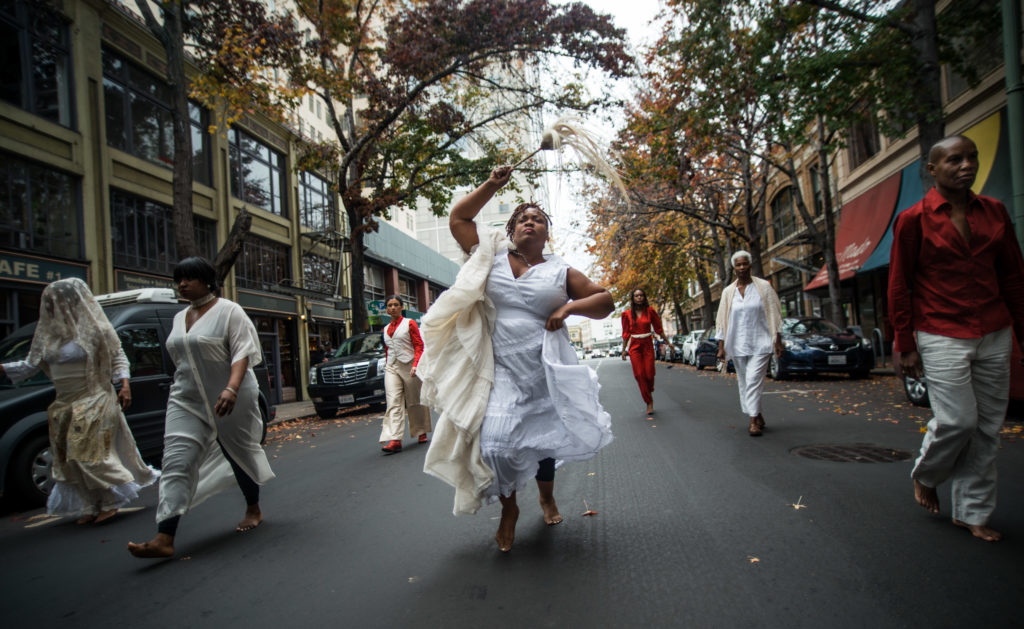
House/Full of Blackwomen Episode: “We Are Here To Stay,” a ritual procession on the streets of downtown Oakland in honor of Home-fullness, November 2015. Photo by Robbie Sweeny.
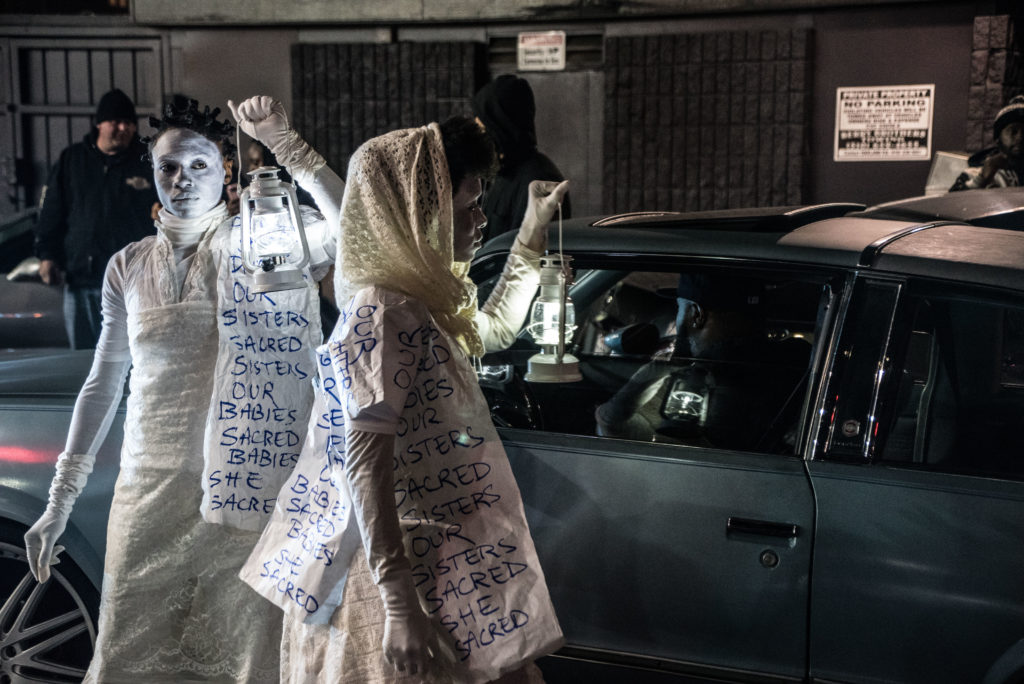
House/Full of Blackwomen Episode: “Now You See Me (Fly),”a ritual procession on the streets of Downtown Oakland against sex trafficking, May 2016. Photo by Robbie Sweeny.
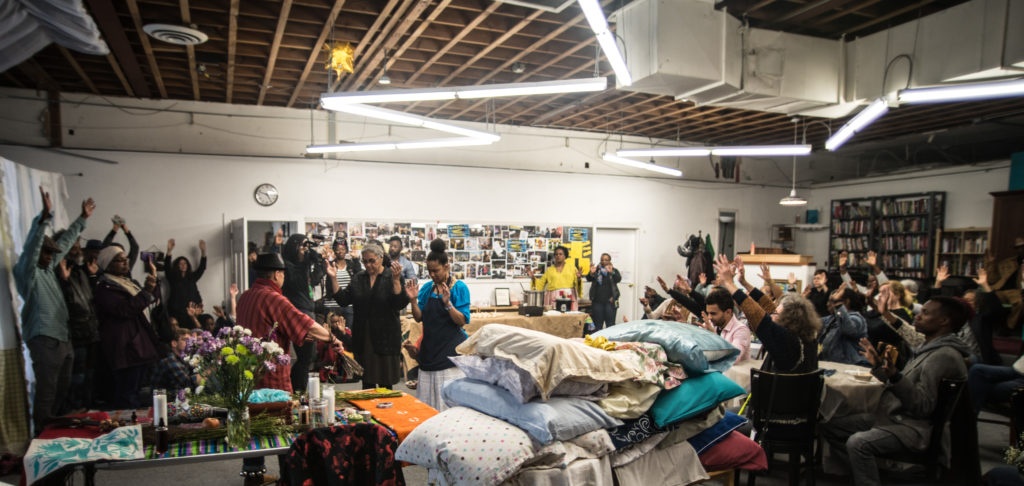
House/Full of Blackwomen Episode: “Black Womxn Dreaming,” the blessing of the beds ceremony for a seven-day and night ritual of black women sleeping in a secret Oakland location. This ceremony invited the public to bring their pillows to be blessed, and to send the first wave of black women off to their ritual of rest, March 2017. Photo by Robbie Sweeny.
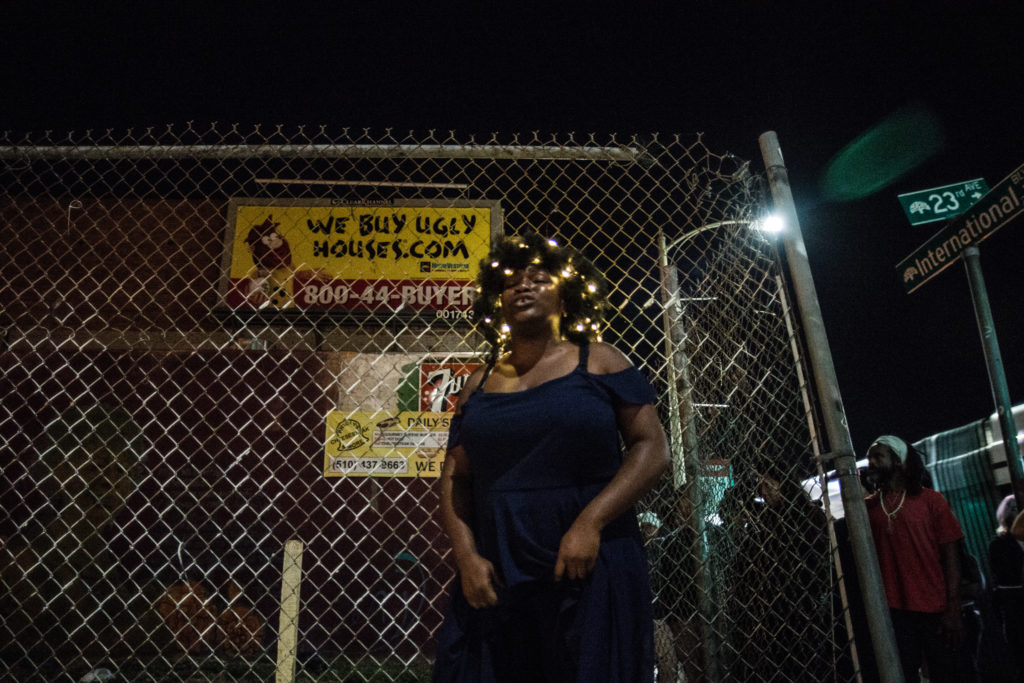
House/Full of Blackwomen Episode: “The Meaning of Canaries,” a ritual performance addressing displacement in Oakland; East Side Arts Center, October 2016. Photo by Robbie Sweeny.